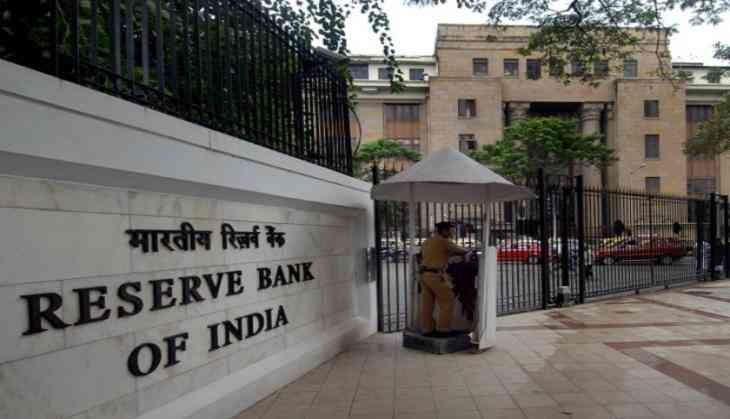RBI's diktat on Dena Bank: No good days ahead for the Indian economy

Over the last two years at least, the Narendra Modi government is trying to convince the world that the bad loan crisis in the Indian banking system has been arrested and things will improve very soon. The assurances given by the government are important for foreign as well as domestic investors to continue believing in India's potential to grow at the rate of 8%, at least.
But the reality is far from the government's promises.
Take the case of Dena Bank. The RBI has asked the bank to stop giving out fresh loans to its customers. The bank's financial position is so bad that RBI does not trust its management to take right decisions in extending new loans.
The move is a part of the RBI’s prompt corrective action against public sector lender Dena Bank in view of its high non-performing loans. The bank was already under the Prompt Corrective Action (PCA) since May 2017 and was functioning under certain restrictions with regards to its operations.
Already, 11 out of 21 state-owned banks are under the RBI’s PCA because of their weak financials. If these banks continue to post bad financial results, the many more of them are likely to face similar restrictions on lending.
There are already rumours that Oriental Bank of Commerce too, is in the list of banks that would be disallowed from lending. It reported a net loss of Rs 1,650 crore for the quarter ended March 2018. The bank had recorded a net loss of Rs 1,218 crore for the same quarter last year.
Will the situation improve?
The order that bars Dena bank from issuing fresh loans is likely to have a negative impact on the bank's financials and will initiate a vicious cycle that can put the bank in a freefall situation where it can neither improve its revenue nor improve recoveries of bad loans.
What stops the recovery?
While the government has been trying to support ailing PSBs by providing additional capital to the banks, the failure of the Insolvency & Bankruptcy Law to expedite the liquidation of companies that have failed to repay their due loans has added to the woes of the lenders.
The PSBs were pinning their hopes on loan recoveries from large accounts that are in the National Company Law Tribunal (NCLT) for resolution under the Insolvency and Bankruptcy Code. However, the NCLT seems to be overburdened with the large number of cases that it has to deal with.
The NCLT was supposed to have completed the financial bidding process of 12 large corporate accounts that account for Rs 1.75 lakh crore worth of bad loans.
But to the dismay of the government, all the bids have faced legal hurdles, leading to a delay in the resolution and recovery of loans for banks. Moreover, the RBI guidelines require banks to provide 50% provisioning against the secured exposure and 100% against the unsecured exposures in these cases.
As per the IBC, a corporate insolvency proceeding has to be resolved within 180 to 270 days but the deadline for most of these 12 cases is over, and at least in five cases the NCLT has agreed to extend the deadline.
The longer the process of recovery takes, the higher would be the loss of the banks involved because they would not be able to use the money for lending set aside for provisioning as per the RBI guidelines.
Impact on the economy
Indian PSBs account for close to 70% of the loans extended in the Indian economy. While the bigger companies have the option of going to foreign institutions but the small players completely rely on domestic lending institutions for working as well as growth capital. This segment was at the receiving end of the demonetisation policy as well. The fall in the value of rupee is making it difficult even for bigger Indian corporates to look for foreign funding as the cost of hedging would be too much to benefit out of the lending facility for these companies.
In this scenario, the government of India seems to be helpless and without any answers to the problem of bad loans in the country. All the talks of above 8% growth in the Indian economy would remain on paper as long as India's lending institutions remain stuck in the quicksand of NPAs.


